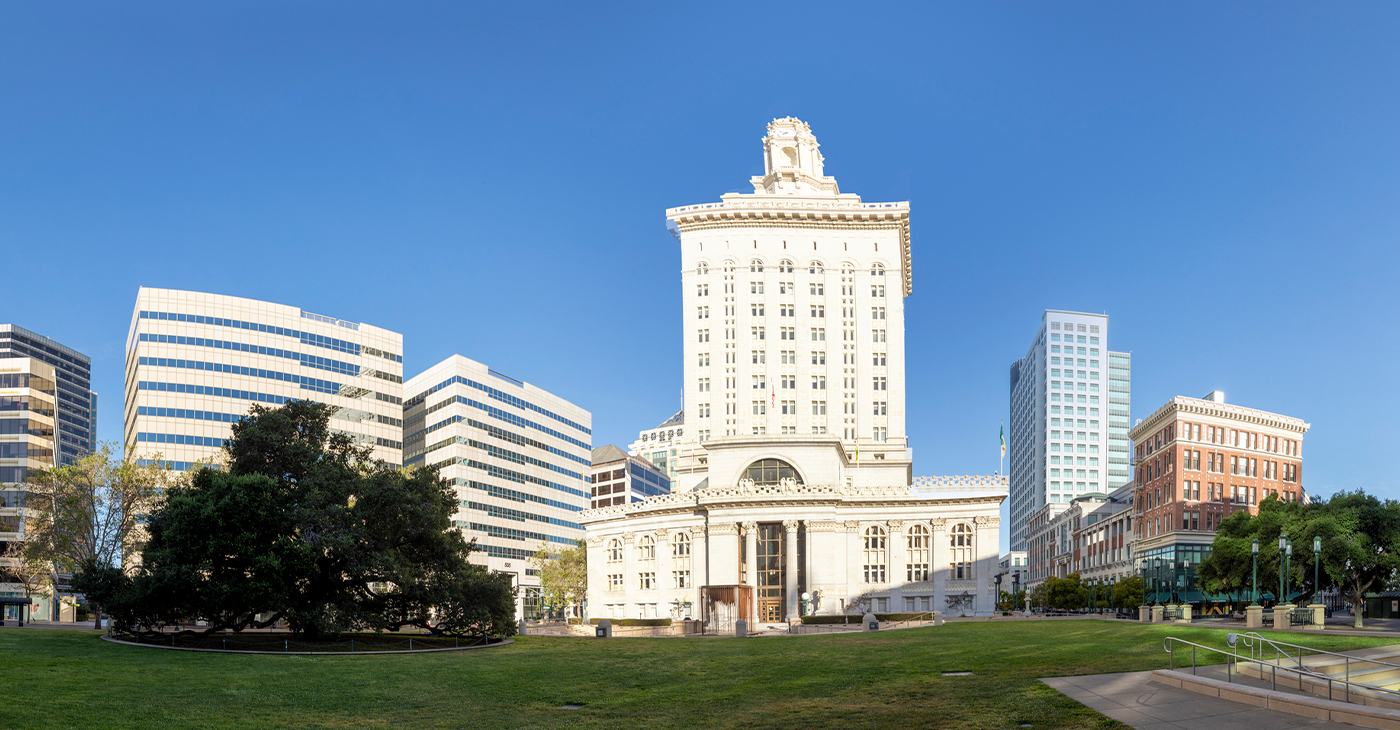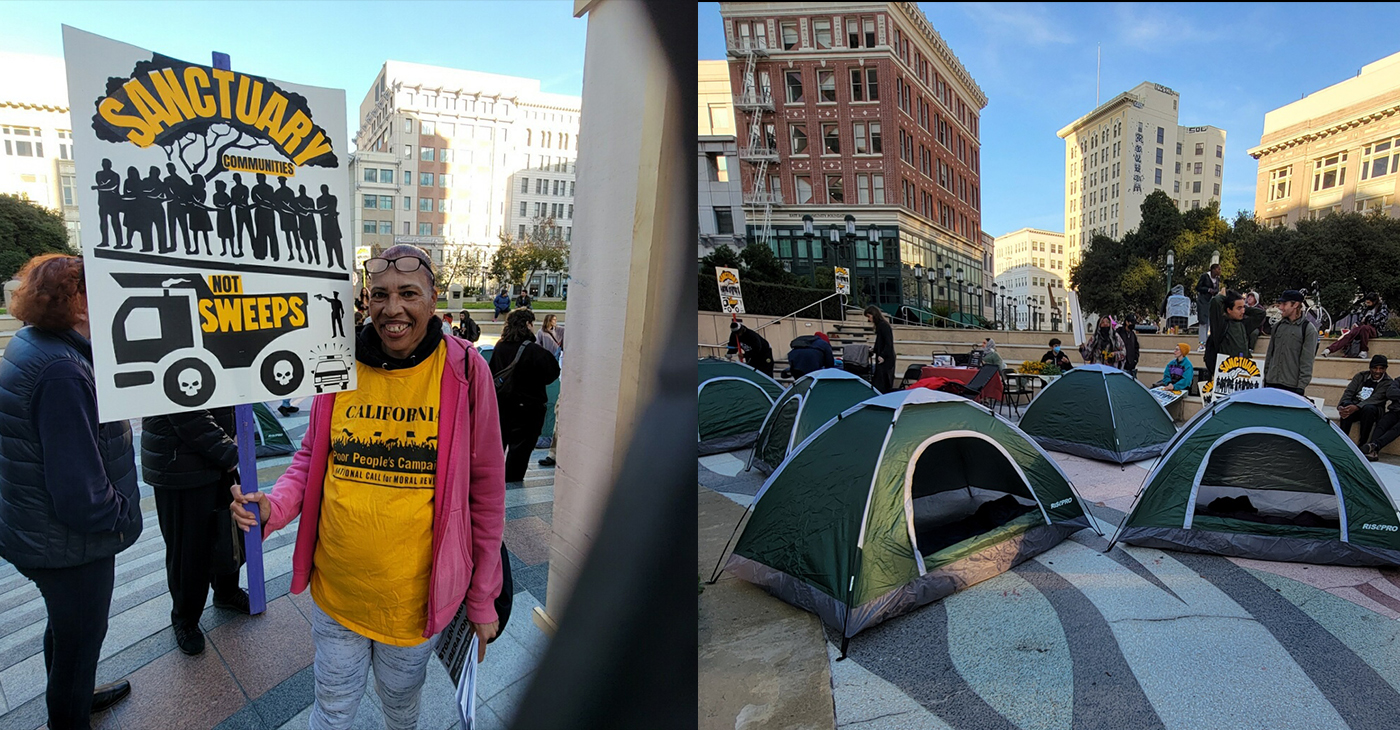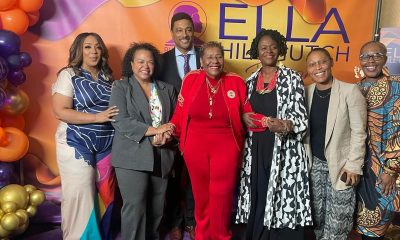Politics
High court blocks census citizenship question
WAVE NEWSPAPERS — In a ruling by Chief Justice John G. Roberts Jr., who was joined by the court’s liberals, the court said the Trump administration did not adequately explain its reason for adding the question. The ruling included a direct rebuke to Commerce Secretary Wilbur Ross, who last year decided to add a citizenship question to all forms for the first time since 1950.
By Wave Wire Services
LOS ANGELES — Southland elected officials and immigration-rights activists hailed a U.S. Supreme Court ruling June 27 that blocked a citizenship question on the 2020 Census.
“This ruling is a victory for an accurate, comprehensive and complete census count,” Rep. Lucille Roybal-Allard, D-Los Angeles, said.
“[President Donald] Trump is eager to silence the voices of vulnerable populations in our communities. That’s why he wanted a census citizenship question that will dramatically undercount these populations.
“An accurate and complete 2020 Census is essential to ensuring our communities receive the federal funds we need for countless critical programs, including Medicare and Medicaid, school lunches, highway funding, housing assistance and more,” she said. “While the court’s ruling is a victory for our nation, our House Democratic majority will stay vigilant, and fight any further efforts to sabotage a fair and accurate 2020 Census.”
In a ruling by Chief Justice John G. Roberts Jr., who was joined by the court’s liberals, the court said the Trump administration did not adequately explain its reason for adding the question. The ruling included a direct rebuke to Commerce Secretary Wilbur Ross, who last year decided to add a citizenship question to all forms for the first time since 1950.
“Altogether, the evidence tells a story that does not match the.explanation the secretary gave for his decision,” Roberts said.
The court sent the matter back to a lower court for review.
In January, U.S. District Judge Jesse Furman in New York blocked the citizenship question and issued a 277-page opinion describing how Ross had failed to follow the advice of census experts or explain his reasons for making a change that could lead to a severe undercount. Judges in San Francisco and Maryland handed down similar rulings.
The Supreme Court agreed to hear the administration’s appeal in the case of Department of Commerce vs. New York on a fast-track basis because the government said it needed to begin printing census forms this summer.
On Twitter, Trump blasted the ruling.
“Seems totally ridiculous that our government, and indeed country, cannot ask a basic question of citizenship in a very expensive, detailed and important census, in this case for 2020,” he wrote. “I have asked the lawyers if they can delay the census, no matter how long, until the United States Supreme Court is given additional information from which it can make a final and decisive decision on this very critical matter.
“Can anyone really believe that as a great country we are not able to ask whether or not someone is a citizen. Only in America!”
Los Angeles City Attorney Mike Feuer said that although the Trump administration has the ability to provide in court a more robust reason adding the question, he said he doesn’t think it will convince the court to overturn the ruling.
“This Supreme Court led by its chief justice said … this was, essentially, a contrived rationale, and so it’s been sent back for another rationale,” Feuer said. “But here’s the thing: There is no other rationale. There is nothing else going on here but an attempt to marginalize Latinos throughout the United States to make sure their voices don’t count. That’s what this has been about since the inception of this question.”
Several Los Angeles-area leaders gathered at Grand Park in downtown to hail the ruling.
“Los Angeles County will continue to collaborate with our tribal, city leaders … and especially our school districts and many others to ensure everybody is counted,” County Supervisor Hilda Solis said.
Solis was joined by members of CHIRLA, the NALEO Educational Fund and the Advancement Project California in praising the decision.
“In light of [the] Supreme Court ruling, we all will stay determined and committed to a robust (census) outreach,” Solis said. “This ruling, as you know, will impact the lives of our most vulnerable.”
Solis said undocumented residents without full citizenship have been fearful of answering the question because it would require them to disclose their immigration status. The court’s decision comes just a few days after Trump pulled back the reins on another immigration sweep in major cities.
Without an accurate census, it may be difficult to receive federal funding for programs that can serve the entirety of the need-based population, Solis said.
An undercount in the state could also lead to a loss of representation in Congress.
Los Angeles Unified School District Superintendent Austin Beutner called the court’s ruling “the right thing for public education.”
“The census is used to determine the amount of funding Los Angeles Unified receives from federal programs,” he said. “Los Angeles Unified received $328 million in Title I funding and nearly $40 million for other federal education and health programs for the 2017-18 school year. If the question is eventually included, it could lead to a loss of as much as $20 million every year in Title I funding, which would pay for about 200 additional teachers in schools serving students with the highest needs.
“The citizenship question is not some abstract, legal issue. It has real consequences in our schools,” he said.
Los Angeles Mayor Eric Garcetti was effusive.
“This is a hopeful day for our democracy. The census is the largest civic exercise in our country — an opportunity to show that everyone belongs here and everybody counts,” he said in a statement. “Instead, the administration tried to change who we are and write millions of people out of America’s story. Fortunately, the Supreme Court stopped this cynical ploy in its tracks, removing a major roadblock to participation in next year’s tally.”
Garcetti said he will work “to ensure that hard-to-count populations — immigrant households, communities of color, low-income residents, and our most vulnerable neighbors — and all Angelenos are counted in the 2020 Census.”
This article originally appeared in the Wave Newspapers.
Activism
Oakland Post: Week of December 25 – 31, 2024
The printed Weekly Edition of the Oakland Post: Week of December 25 – 31, 2024

To enlarge your view of this issue, use the slider, magnifying glass icon or full page icon in the lower right corner of the browser window. ![]()
Alameda County
Last City Council Meeting of the Year Ends on Sour Note with Big Budget Cuts
In a five to one vote, with Councilmembers Carroll Fife and Janani Ramachandran excused, the council passed a plan aimed at balancing the $130 million deficit the city is facing. Noel Gallo voted against the plan, previously citing concerns over public safety cuts, while Nikki Fortunato-Bas, Treva Reid, Rebecca Kaplan, Kevin Jenkins, and Dan Kalb voted in agreement with the plan.

By Magaly Muñoz
In the last lengthy Tuesday meeting of the Oakland City Council for 2024, residents expressed strong opposition to the much needed budget cuts before a change in leadership was finalized with the certification of election results.
In a five to one vote, with Councilmembers Carroll Fife and Janani Ramachandran excused, the council passed a plan aimed at balancing the $130 million deficit the city is facing. Noel Gallo voted against the plan, previously citing concerns over public safety cuts, while Nikki Fortunato-Bas, Treva Reid, Rebecca Kaplan, Kevin Jenkins, and Dan Kalb voted in agreement with the plan.
Oakland police and fire departments, the ambassador program, and city arts and culture will all see significant cuts over the course of two phases.
Phase 1 will eliminate two police academies, brown out two fire stations, eliminate the ambassador program, and reduce police overtime by nearly $25 million. These, with several other cuts across departments, aim to save the city $60 million. In addition, the council simultaneously approved to transfer restricted funds into its general purpose fund, amounting to over $40 million.
Phase 2 includes additional fire station brownouts and the elimination of 91 jobs, aiming to recover almost $16 million in order to balance the rest of the budget.
Several organizations and residents spoke out at the meeting in hopes of swaying the council to not make cuts to their programs.
East Oakland Senior Center volunteers and members, and homeless advocates, filled the plaza just outside of City Hall with rallies to show their disapproval of the new budget plan. Senior residents told the council to “remember that you’ll get old too” and that disturbing their resources will only bring problems for an already struggling community.
While city staff announced that there would not be complete cuts to senior center facilities, there would be significant reductions to staff and possibly inter-program services down the line.
Exiting council member and interim mayor Bas told the public that she is still hopeful that the one-time $125 million Coliseum sale deal will proceed in the near future so that the city would not have to continue with drastic cuts. The deal was intended to save the city for fiscal year 2024-25, but a hold up at the county level has paused any progress and therefore millions of dollars in funds Oakland desperately needs.
The Coliseum sale has been a contentious one. Residents and city leaders were originally against using the deal as a way to balance the budget, citing doubts about the sellers, the African American Sports and Entertainment Group’s (AASEG), ability to complete the deal. Council members Reid, Ramachandran, and Gallo have called several emergency meetings to understand where the first installments of the sale are, with little to no answers.
Bas added that as the new Alameda County Supervisor for D5, a position she starts in a few weeks, she will do everything in her power to push the Coliseum sale along.
The city is also considering a sales tax measure to put on the special election ballot on April 15, 2025, which will also serve as an election to fill the now vacant D2 and mayor positions. The tax increase would raise approximately $29 million annually for Oakland, allowing the city to gain much-needed revenue for the next two-year budget.
The council will discuss the possible sales tax measure on January 9.
Activism
Protesters Gather in Oakland, Other City Halls, to Halt Encampment Sweeps
The coordinated protests on Tuesday in San Francisco, Oakland, Vallejo, Fresno, Los Angeles and Seattle, were hosted by Poor Magazine and Wood Street Commons, calling on cities to halt the sweeps and focus instead on building more housing.

By Post Staff
Houseless rights advocates gathered in Oakland, San Francisco, Los Angeles, and other city halls across California and Washington state this week protesting increased sweeps that followed a U.S. Supreme Court decision over the summer.
The coordinated protests on Tuesday in San Francisco, Oakland, Vallejo, Fresno, Los Angeles and Seattle, were hosted by Poor Magazine and Wood Street Commons, calling on cities to halt the sweeps and focus instead on building more housing.
“What we’re dealing with right now is a way to criminalize people who are dealing with poverty, who are not able to afford rent,” said rights advocate Junebug Kealoh, outside San Francisco City Hall.
“When someone is constantly swept, they are just shuffled and things get taken — it’s hard to stay on top of anything,” said Kealoh.
Local houseless advocates include Victoria King, who is a member of the coordinating committee of the California Poor People’s Campaign. She and Dr. Monica Cross co-chair the Laney Poor People’s Campaign.
The demonstrations came after a June Supreme Court ruling expanded local governments’ authority to fine and jail people for sleeping outside, even if no shelter is available. Gov. Gavin Newsom in California followed up with an order directing state agencies to crack down on encampments and urging local governments to do the same.
Fresno, Berkeley and a host of other cities implemented new rules, making it easier for local governments to clear sidewalk camps. In other cities, such as San Francisco, officials more aggressively enforced anti-camping laws already on the books.
-

 Activism4 weeks ago
Activism4 weeks agoOakland Post: Week of November 27 – December 3, 2024
-

 Activism2 weeks ago
Activism2 weeks agoButler, Lee Celebrate Passage of Bill to Honor Congresswoman Shirley Chisholm with Congressional Gold Medal
-

 Activism2 weeks ago
Activism2 weeks agoPost News Group to Host Second Town Hall on Racism, Hate Crimes
-

 Activism2 weeks ago
Activism2 weeks agoDelta Sigma Theta Alumnae Chapters Host World AIDS Day Event
-

 Business2 weeks ago
Business2 weeks agoLandlords Are Using AI to Raise Rents — And California Cities Are Leading the Pushback
-

 Activism3 weeks ago
Activism3 weeks agoOakland Post: Week of December 4 – 10, 2024
-

 #NNPA BlackPress4 weeks ago
#NNPA BlackPress4 weeks agoNational Action Network Announces 2025 Inauguration Day Rally
-

 Activism2 weeks ago
Activism2 weeks agoOakland Post: Week of December 11 – 17, 2024




























































